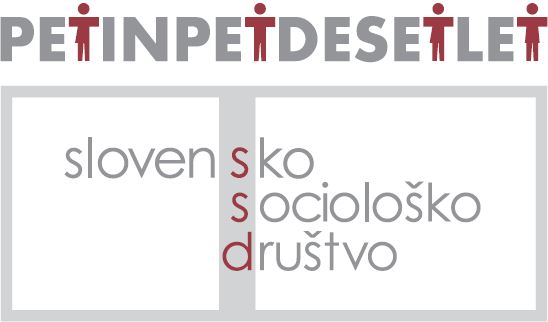Social Science Forum 69 (XXVIII)
Is the history of diplomacy really (only) a matter of politics?
Boštjan Udovič
ABSTRACT: The article focuses on the history of diplomacy and its economic component. The author presumes that diplomacy has, throughout history, been conditioned by the economic interests of its actors (states, private merchants etc.) and began to take on its modern form in Italian city states, representing the first step in the international community’s institutionalisation. The momentum of the French Revolution changed the position of economic interests in diplomacy, replacing it with the political component which dominated world diplomacy for a century. However, a shift in the world econom after the end of WWII created a sense of déjà vu in which the economic component of diplomacy regained its pre-French Revolution position by becoming one of the most important activities of diplomacy.
KEY WORDS: economic diplomacy, French Revolution, consul, diplomat, statecraft
>> Download
Cultural diplomacy and culture in international relations: A case study of Slovenian foreign policy
Jure Požgan, Ana Bojinović Fenko
ABSTRACT: This paper presupposes that small states have a strong national interest to engage in intercultural dialogue in international relations due to limitations of their material foreign policy capabilities. For this purpose, small states would more likely use diplomatic and cultural foreign policy instruments to achieve their foreign policy goals, e.g. a good reputation, prestige and greater international visibility. In this context, the paper aims to establish whether a small state can compensate for a shortfall of its foreign policy capabilities in the implementation of cultural diplomacy by engaging in inter-cultural dialogue through so-called multi-actor coalitions. This research question is applied to a case study of Slovenian foreign policy. Given the relative scarcity of the existing literature in the field of cultural diplomacy, the authors firstly conceptualise culture as a foreign policy decision-making factor and instrument and, secondly, as a field of co-operation in international relations. In analysing whether Slovenia has been successful in attaining its foreign policy objectives in the field of culture, the two core concepts of cultural diplomacy and inter-cultural dialogue are complemented by the concept of international relations in culture where the state primarily focuses on attaining cultural and not foreign policy objectives. The authors conclude that Slovenia as a small state can compensate for its limited foreign policy capabilities in the implementation of cultural diplomacy by engaging in inter-cultural dialogue activities within the framework of multi-actor coalitions, albeit only if its foreign policy objectives are an integral part of the inter-cultural dialogue. The main limitation in reaching its foreign policy objectives through cultural means remains
the lack of a broad political consensus regarding the content of such cultural activity, together with the substantially and organisationally non-transparent implementation of cultural diplomacy and the two notions of culture in international relations.
KEY WORDS: cultural diplomacy, culture in international relations, intercultural dialogue, international relations in culture, foreign policy
>> Download
Environmental diplomacy – An answer to the global environmental challenges of the 21st century?
Danijel Crnčec
ABSTRACT: The article discusses the concept of environmental (and climate) diplomacy. The author firstly defines the concept, then outlines its historical development and key features with the help of a case study of the climate conference in Copenhagen in 2009. The final part rounds up the article and finds the concept of environmental (and climate) diplomacy to be a distinct form of multilateral diplomacy – in the course of finding a consensus on global environmental questions important dimensions represent conference diplomacy along with summit diplomacy, with the latter gaining weight in the final parts of conferences. Environmental diplomacy has helped the international community to solve some grave environmental problems in the past. Nevertheless, the quest for a solution to global climate change issues after Copenhagen in 2009 and Cancun in 2010 goes on.
KEY WORDS: diplomacy, environmental diplomacy, climate diplomacy, international relations, international environmental law
>> Download
Resource diplomacy – An instrument of the past or future? The case of the Russian Federation’s relations with the EU
Denis Mancevič
ABSTRACT: A cyclical energy crisis (2006–2009) strongly affected the long-lasting existing energy relations between the Russian Federation and the EU. The EU generally perceives the Federation’s energy diplomacy as a negative tool of its external foreign policy. According to this perception, the main objectives of Russian energy diplomacy are primarily (geo)political, with a special emphasis on a “divide-et-impera” policy (so-called “energy imperialism”). In this article we attempt to look beyond this dominant scientific and political discourse and further develop alternative approaches (for example the “mutual interdependence” appro–
ach) to analyse the main characteristics of the formation and implementation of Russian energy diplomacy. This article develops the view that Russian energy diplomacy must be understood multidimensionally (beyond the dominant (neo)realist approaches), particularly with regard to the role and importance of Russian energy multinational companies in the process of formulating Russian foreign (energy) policies. The central objectives of Russian energy diplomacy in relation to the EU are not (geo)political, but economic.
KEY WORDS: energy diplomacy, foreign energy policy, Russian Federation, multinational energy companies, mutual interdependence
